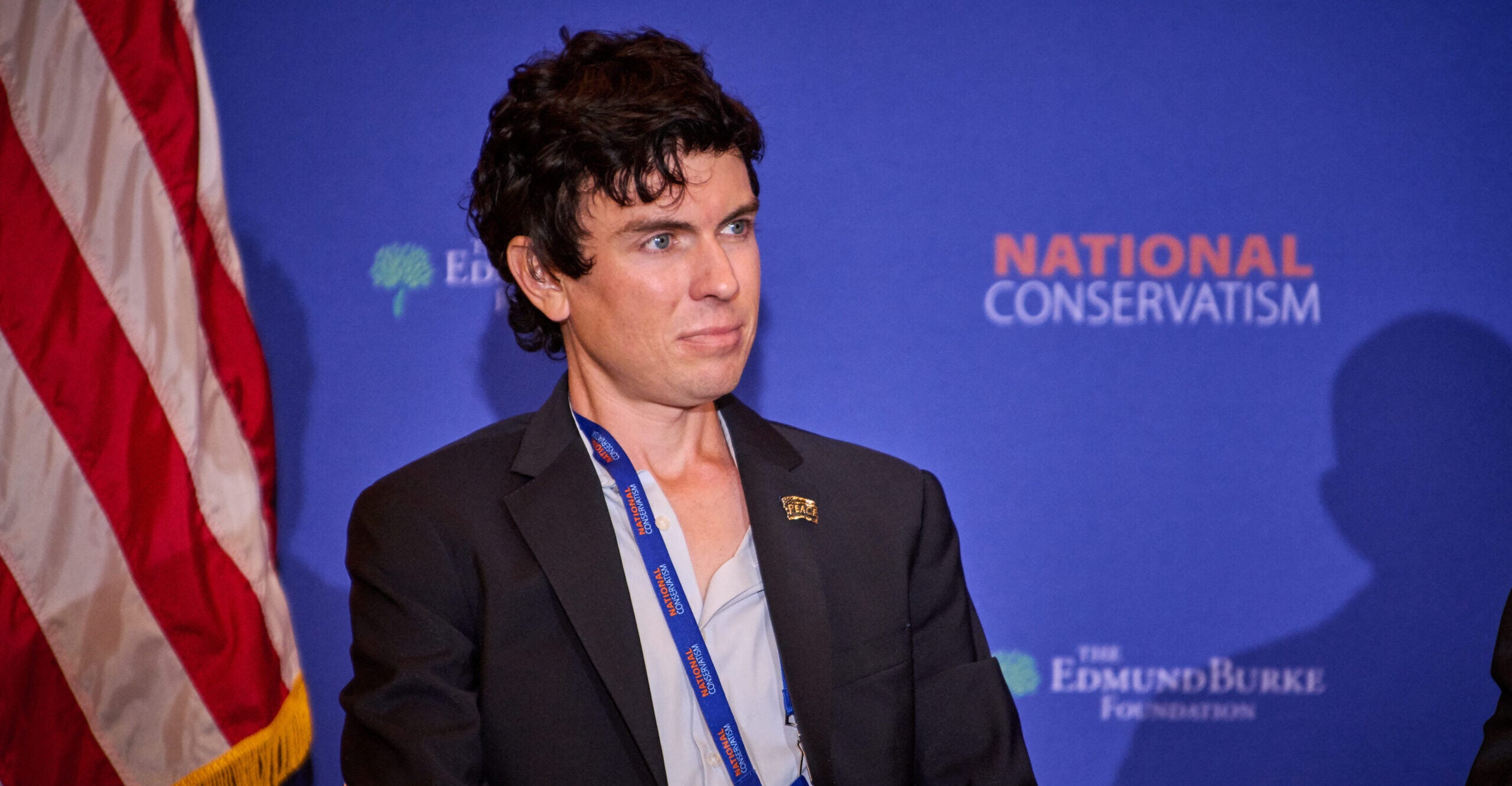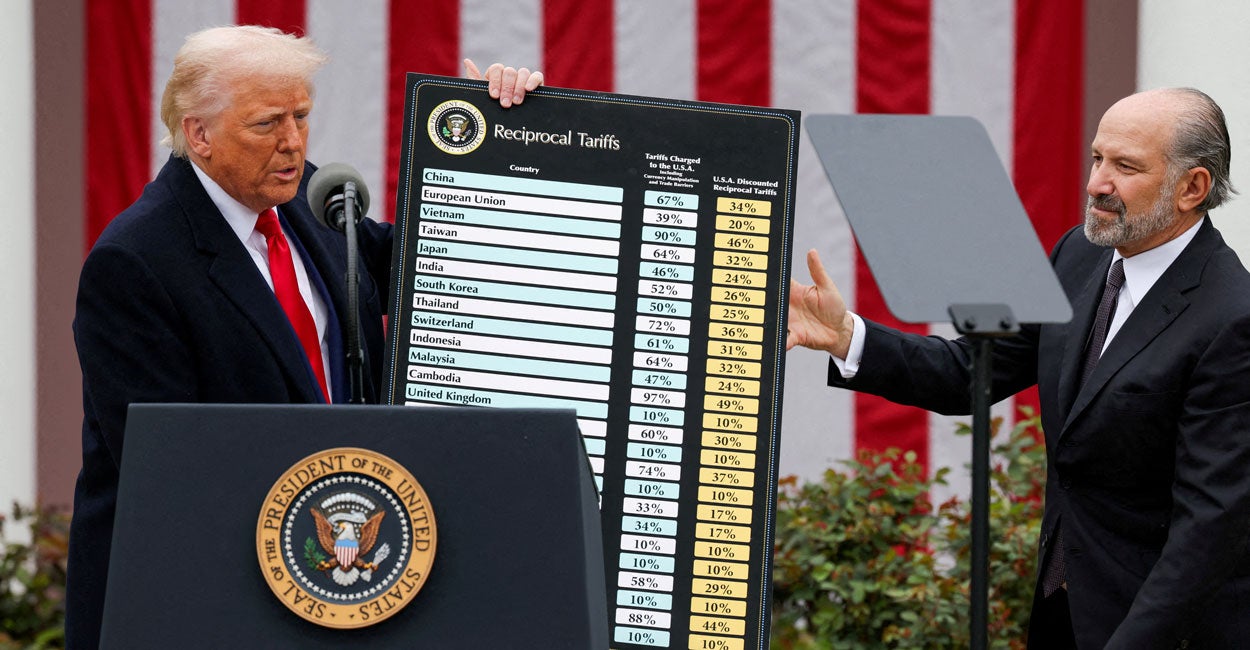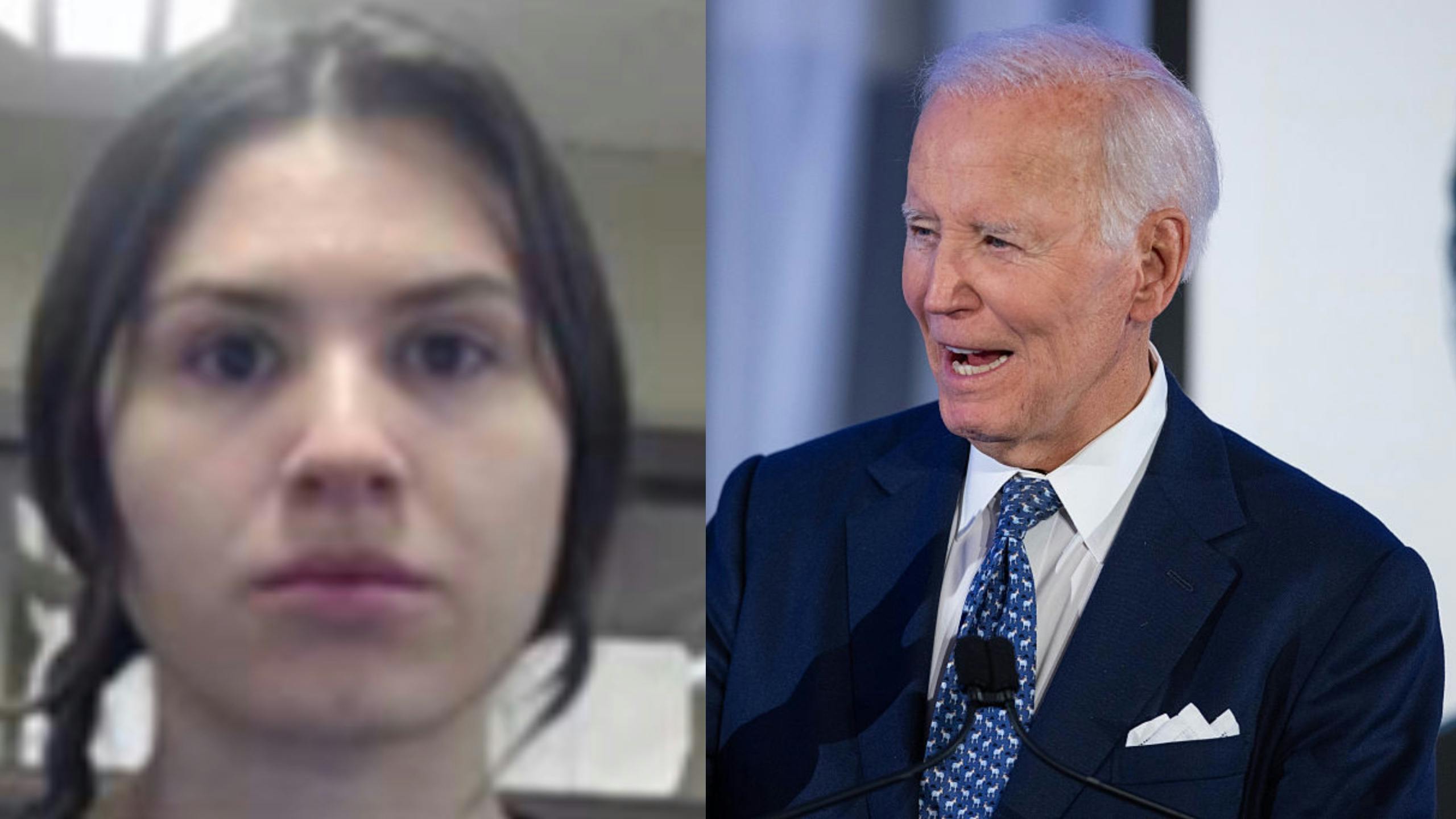The Right’s Divide Over Israel Is an Age Gap

“I’m not really sure that comity is going to be found here,” Curt Mills, the executive director of The American Conservative, told The Daily Signal leading up to this year’s National Conservatism Conference. It proved to be an understatement.
Live Your Best Retirement
Fun • Funds • Fitness • Freedom
“These tensions are just out in the open, and they deserve to be addressed to the conference,” Mills added. To Yoram Hazony and the NatCon organizers’ great credit given the sensitivity of the topic, open and addressed they were.
Tuesday’s breakout session debate that pitted the Israel skeptic Mills against the supportive Max Abrahms, an associate professor at Northeastern University, was a major flashpoint.
Labeling those who expressed concerns about a wider Middle East war and U.S. engagement in the theater in June “MAGA isolationist realists,” Abrahms argued this group is just as wrong about the Middle East as the neoconservatives. “It’s probably the most inaccurate Mideast punditry that you can find anywhere,” Abrahms said of the “MAGA isolationist realists.”
For Mills’ part, what transpired in June—much less the last thirty-plus years of American foreign policy—is “perhaps the world’s historic case of the tail-wagging dog.”
“Why are these our wars? Why are Israel’s endless problems America’s liabilities? Why are we in the national conservative bloc, broadly speaking, why do we laugh out of the room this argument when it’s advanced by Volodymyr Zelenskyy but are slavish hypocrites for Benjamin Netanyahu? Why should we accept America First—asterisk Israel?” Mills asked rhetorically. “And the answer is, we shouldn’t.”
The conversation, moderated by Dan McCarthy of Modern Age, was a clash of ideas. It was also a clash of styles, with Abrahms often sliding into the theoretical, academic aspects and the newsman Mills focusing on the practical realities.
But perhaps more interesting than Mills and Abrahms’ difference in style and philosophy is their difference in age. Mills is a millennial, while Abrahms is of Generation X. On the American Right, age is quickly becoming the greatest predictor of someone’s views on Israel.
The audience question and answer portion of the debate reflected this, as well. Every question fielded by audience members who appeared under 50 was pointedly skeptical of Israel, while questions from audience members over 50 signaled their support for the Jewish state.
A recent Pew Research study suggests this phenomenon is widespread. Among Republicans, those over 50 years old have an overwhelmingly positive view of Israel, while those under 50 are split down the middle.
The degree of separation between Republicans under and over 50 regarding Israel is not necessarily a new phenomenon. When Pew Research asked the same question in a March 2022 study, it found that only 19% of Republicans over 50 had a negative view of Israel, while 35% of those under 50 had a negative view of Israel. Over the course of the war that began on October 7, however, under-50 Republicans’ view of Israel have shifted 15 points. Fifty percent of Republicans under 50 had a negative view of Israel, according to the March 2025 findings. Over that same period, over-50 Republicans’ view moved just 4 points in the same direction, with 23% having a negative view of the Jewish state.
While attempts to explain the motivations for this shift are limited to the realm of conjecture, the timing of the two surveys—March 2022 and March 2025—suggests that Israel’s conduct in the course of the ongoing Middle East war is likely the source of their consternation. On the whole, these younger Republicans are not molding into Mahmoud Khalil or Hamas sympathizers. They’re not mini-Mahmoud Ahmadinejads or Holocaust deniers. An April 2024 study, also from Pew Research, helps substantiate this claim. A plurality of Americans under 50 surveyed said the reason for Israel’s war with Hamas was “valid.” A plurality of that same demographic group, however—at the time less than a year into the hostilities—said the way in which Israel was carrying out its response was “unacceptable.”
When Pew conducted its survey in March 2025—before U.S. strikes on Iranian nuclear facilities—a majority of Republicans (51%) believed Trump was striking the right balance in the Middle East conflict. At that time, Trump was taking a hard line with Hamas by demanding the release of all hostages and warning terrorist and militia groups in the region against potential strikes on American targets. Simultaneously, the administration reiterated it would not commit to boots on the ground for any post-war Gaza arrangement.
The views of younger Republicans, however, changed in the wake of the U.S. strikes on Iran in June. Only 20% of Republicans under the age of 45, according to a CNN poll in June, strongly approved of Trump’s Iran strikes, as opposed to a majority (53%) of over-45 Republicans who strongly approved. These younger Republicans, the CNN poll found, are also 26 points less likely to trust Trump’s Iran decisionmaking a “great deal” and 20 points more likely to believe the strikes will ultimately increase the Iranian threat.
The question the Right’s generational divide on Israel raises, however, is whether or not the victory over neoconservatism has been Pyrrhic.
While Abrahms repeatedly rejected neoconservatism, Mills asked if there was one neoconservative that disapproved of the B-2 strikes in June, to which Abrahms was unable to provide an example. Nor was Abrahms quick to point out a substantive difference between his views on June’s strikes and the views of the neoconservatives.
That answer did not satisfy Mills. Nor is it likely to satisfy young conservatives who have grown up in a world formed by the heavy-handed influence of neoconservatism. They are dyed-in-the-wool anti-neocons. They are all too familiar with the empty promises of neoconservatism.
Neoconservatism promised its wars would be a boon to the American economy and the American worker, but, when all is said and done, their misadventures will likely cost the American people $10 trillion. Neoconservatism promised to vanquish the threat of terrorism from abroad, but the result has been more of it at home. Above all, neoconservatism promised that exercising America’s military might would lead to a domino-effect for democracy across the world. The opposite has occurred.
To be clear, you don’t have to be a neocon to support Israel—look no further than NatCon founder himself, Hazony.
Even so, the apparent alignment between the Republican Party’s center-right hawks and the neocons that remain on Iran simply leaves one to wonder if neoconservatism has actually been excised from the conservative movement, or if Trump and the disasters of the last 30 years of American foreign policy have simply made the brand too toxic to embrace openly.
If it’s the latter, the realists’ victory over neoconservatism will be a mirage until the generational shift within the conservative movement naturally turns over.
The post The Right’s Divide Over Israel Is an Age Gap appeared first on The Daily Signal.
Originally Published at Daily Wire, Daily Signal, or The Blaze
What's Your Reaction?
 Like
0
Like
0
 Dislike
0
Dislike
0
 Love
0
Love
0
 Funny
0
Funny
0
 Angry
0
Angry
0
 Sad
0
Sad
0
 Wow
0
Wow
0













































































